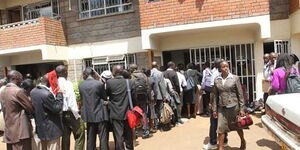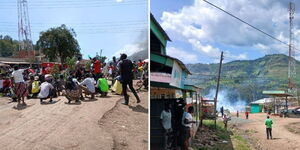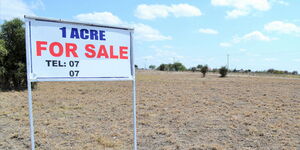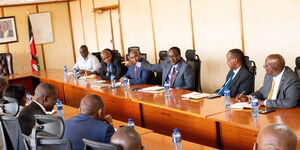More than a week after Deputy President Rigathi Gachagua went public advocating for the one-man one-vote one-shilling policy, President William Ruto's Chief Economic Advisor David Ndii has opposed the view.
In a series of X posts on Sunday, Ndii maintained that other regions such as the Coast contribute more taxable revenue to the state compared to the populous Mt Kenya region.
Basing his argument on Base Titanium, the economic adviser argued that the company based in Kwale County (and scheduled to exit the Kenyan market by the end of the year) paid Ksh7 billion in taxes and royalties in the financial year that ended in June 2023.
"Base Titanium in Kwale paid Ksh7 billion taxes in 2023. Add all the taxes paid by hotels in Diani and Devki Steel Mill among other large taxpayers in Kwale. I challenge the one-man one-shilling (Mt Kenya) supremacists to list the comparable taxpayers in central," challenged Ndii.
On Monday last week, the deputy president told a congregation that the policy was the only way to ensure an equitable share of resources by the government.
Gachagua had justified that Mt Kenya was among the most populous regions in the country and held the most votes.
“In matters of revenue sharing, I firmly believe in one-man-one-vote-one-shilling. It’s a straightforward concept: the more people there are in an area, and the more taxes they contribute, the more funding they deserve to receive,” Gachagua stated at the time.
“The push for this formula is not just about our region’s high population but because it is the right thing to do. We are committed to ensuring fairness in the sharing of national revenue."
Ndii, however, argued that the Mt Kenya region is dominated by agricultural land which fetches little tax returns for the government.
He further argued that in his role as an advisor, he spent 18 months pitching public-private partnership projects estimated in billions of shillings but none of the targeted companies were located in Mt Kenya, making it difficult for the policy to be effective.
The projects in question include a 20.0000-megawatt windpower in Marsabit, the Lamu Port South Sudan Ethiopia Transport (LAPSSET) Corridor, the Tana-Galana Kulalu irrigation scheme, and the Turkwel Turkana irrigation scheme.
Public Service CS Moses Kuria had also opposed the policy arguing that the Mt Kenya region was well represented in the government's top echelon.
In fact, he revealed that more than nine leaders had been appointed to the Cabinet and leadership positions in Parliament and were better placed to spearhead the rollout of the policy.












